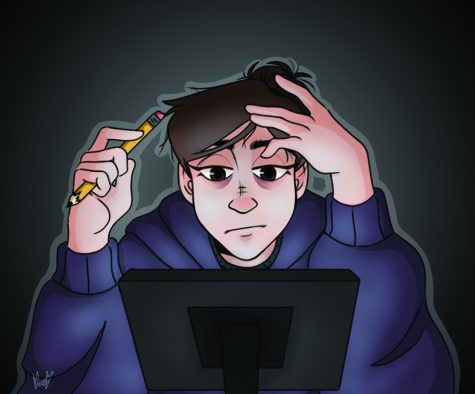Pay to Play receives mixed reactions upon passing
As the month of September ended, the governor of California, Gavin Newsom, signed a revolutionary bill. The Fair Pay to Play Act (FPTPA) is a bill that will forever change the world of college sports. Although college level athletics may not seem like a particularly touchy political subject, this bill involves money. Hence, controversy.
So what exactly does this bill do? Well, it’s fairly straightforward in concept. The FPTPA allows college athletes to make money off of their image, just like professional players, through means of sponsorships and endorsements. Despite the fact that college players are still strictly forbidden to receive salaries for their playing by the National Collegiate Athletic Association (NCAA), this is bill is big.
Locally, this doesn’t affect Vandals fans and Cougs fans. California passed the bill, not the federal government. So if someone buys all the college gear they want, so long as it doesn’t pertain to a Californian player, that money will still go to the NCAA. On top of that, the bill only will come into effect in 2023. However, for those college hopefuls in California, this still complicates things.
The NCAA has threatened to ban Californian universities from participating in NCAA championships if the bill is passed, as NPR reports. So, most universities aren’t exactly fans of FPTPA. Currently, the NCAA is profiting off the names of players, as well as the universities that they play for, and they manage the deals involving the players’ sponsorships.
Still, Larry Scott, the Pac-12 Commissioner, criticized the bill. (The Pac-12 is a conference of college sports teams in the west, including California.) According to the Los Angeles Times, he stated that the bill would only benefit male players. He also argued that this would take away funding from other sources, since colleges would lose a lot of money from this bill.
Despite this, many former college athletes have praised the bill including Bill Walton, who played for the University of California, Los Angeles, and Lebron James, who skipped college altogether for the NBA. One pro athlete who not on the list of supporters is Tim Tebow. Forbes magazine reports his argument is that college football is the last chance to play for a team, not the money. As altruistic as it sounds, there may be warrant to the argument. However, for the vast majority of players at the college level, from football to basketball to soccer, college will be the only time to play, much less make money off of sponsorships and endorsements.
It’s tempting to consider this conflict as only that of the athletes and a greedy corporate scheme, without any other story. The thing is, it’s not so cut and dried. There are logistics that complicate things. California might attract all the players who are good enough to get paid. There are other valid arguments against the bill, such as the fact that college players already get paid in that of a free education. In some cases students save more than $100,000 to play for the college. But in the end, the profits that come from the players doing their jobs don’t go directly to them. While millions on top of millions are spent on coaches, staff, stadiums and more, the players don’t see a dime of that money. Despite this, the universities make millions in sponsorships, forcing the student athletes to give up control of that aspect of their college career in sports.
Though the FPTPA may not be perfect, it might be a step in the right direction.










